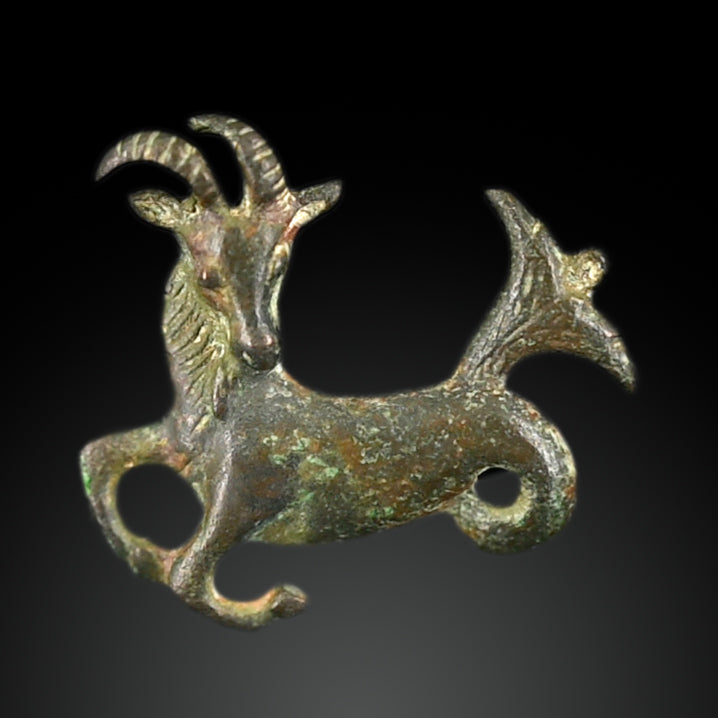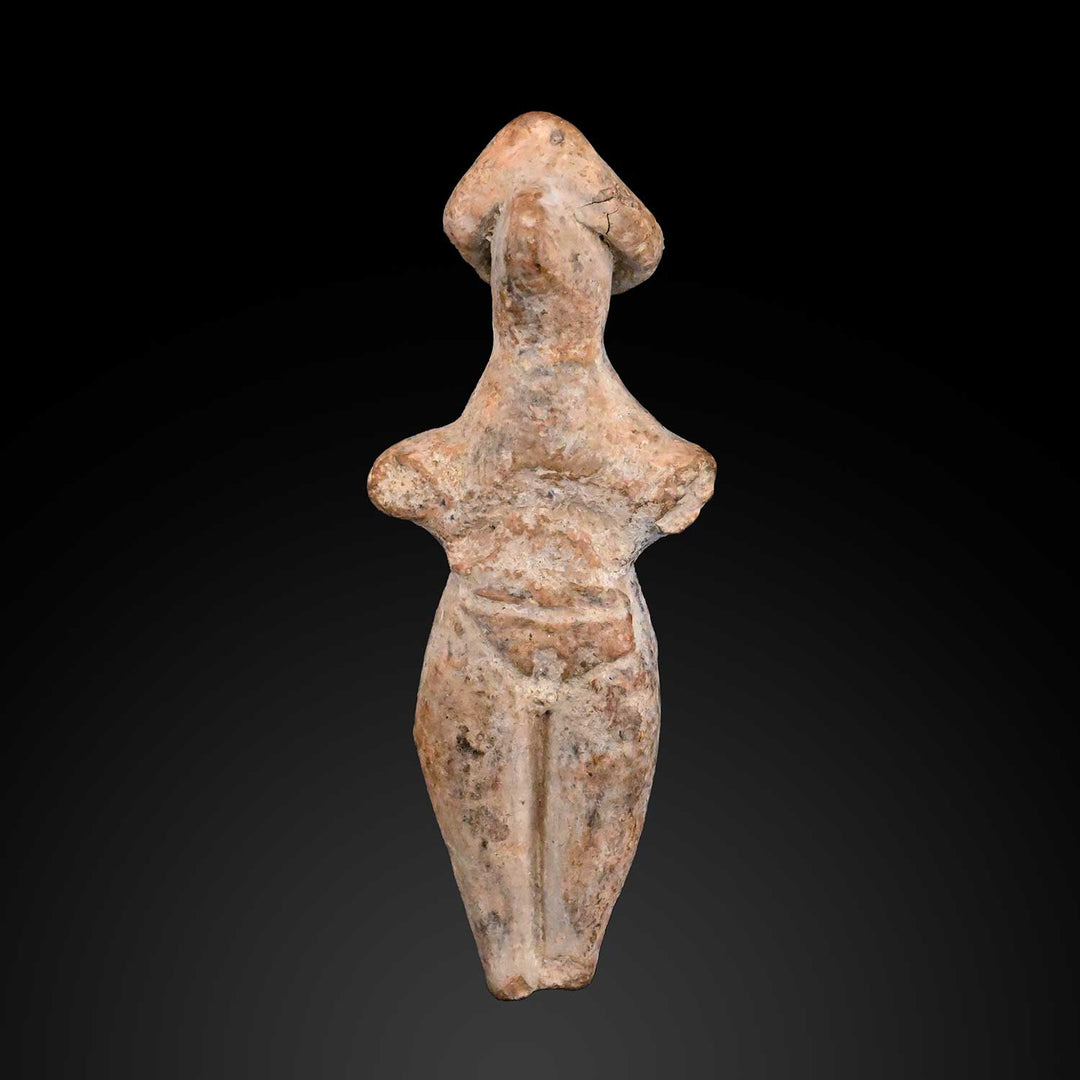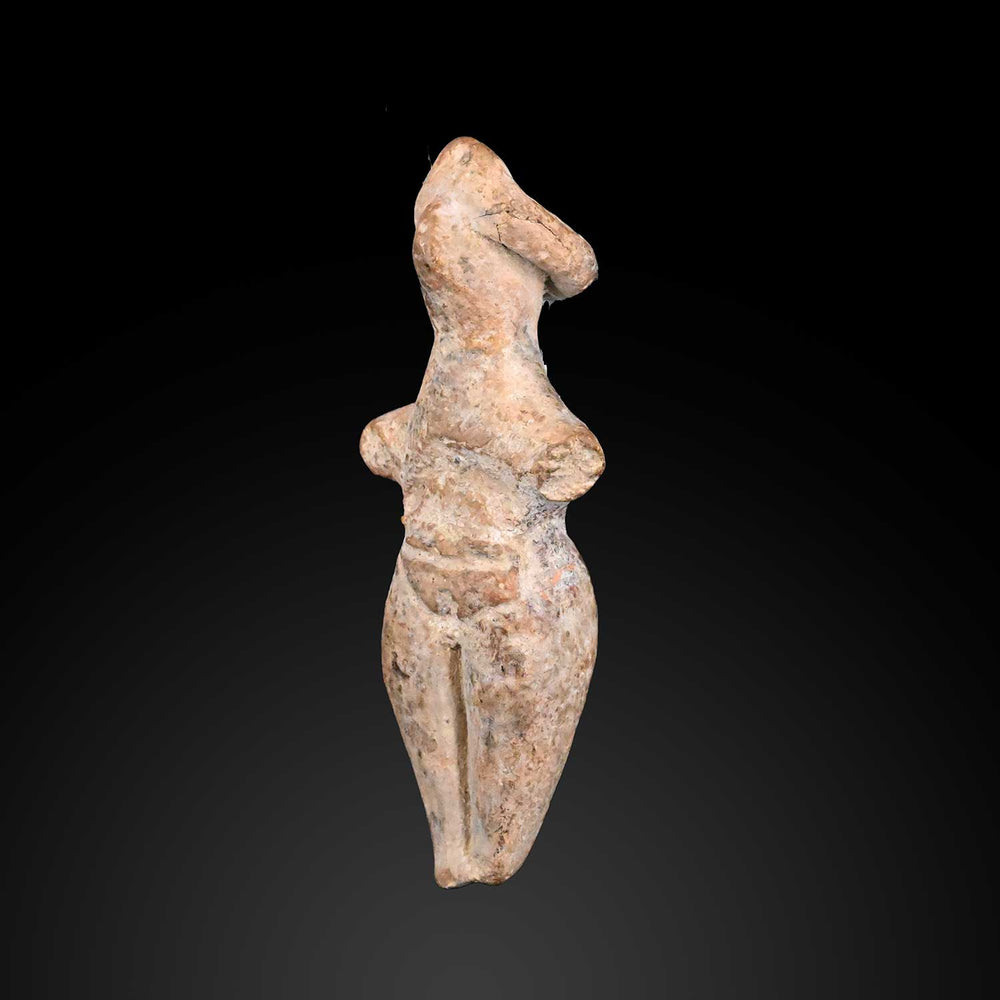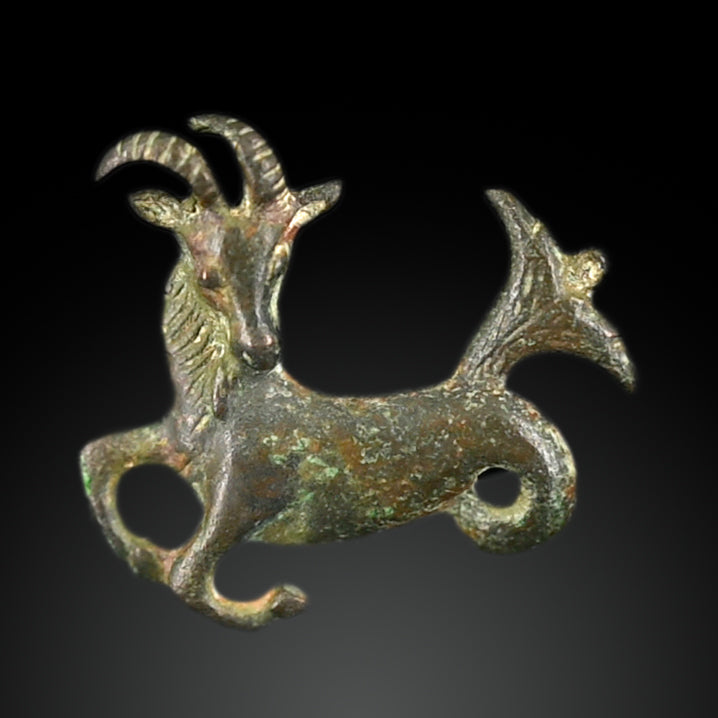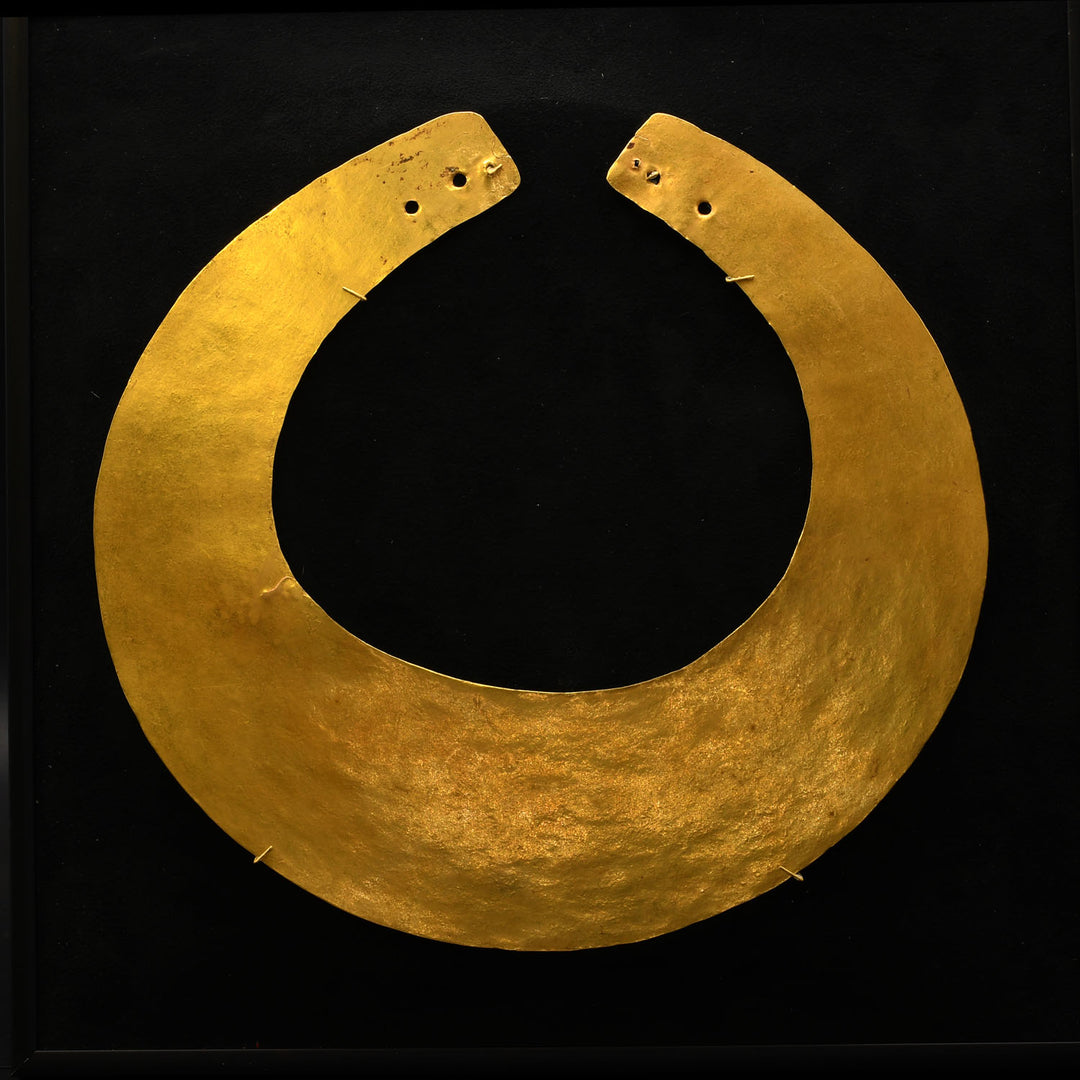An exhibited Neolithic Terracotta Steatopygous Female,
Anatolia, ca. 4th - 3rd millennium BCE
MT2203
- This object qualifies for free and fast worldwide shipping.
One of the oldest fertility objects, this rare standing female figure is one of many examples produced in Anatolia during the Neolithic Age. The long cylindrical head, with its slightly modeled nose and mouth, wears a headdress and is attached to the body on a continuous plane with the neck. The arms appear extended, but the lower arms are missing. Rather than concentrating on facial characteristics and clearly articulating the upper body, the artist paid considerable attention to those parts of the body associated with sexual reproduction. Incised lines are used to emphasize the prominent belly, pubic triangle, full legs, and buttocks.
She is an example of the so-called "steatopygous" figure type. The name derives from “steatopygia,” which is defined as an excessive development of fat on the lower body. Characterized by particularly full legs and buttocks, the type is probably indicative of fertility. Very little is known about the meaning and function of these Neolithic figures. They are frequently depicted squatting or seated with very schematic facial features. Incised or painted designs on some figurines may represent clothing, jewelry, or body parts. Whether male or female, the rendering of the body often accentuates the reproductive organs, and the exaggerated proportions of the hips and belly have been interpreted as fertility symbols. Similar types of figurines have been discovered in habitations, burials, and religious settings, and such objects likely served more than one purpose. When buried beneath the floors of dwellings, they may have served as foundation offerings to safeguard the home and its occupants. Figurines in domestic settings could have served a social function, perhaps as objects for exchange, or even used as toys. Those found in graves or shrines may have been representations of humans or deities associated with fertility.
Exhibited: Boston Museum of Fine Arts, between 1992 - 2008.
Dimensions: Height: 3 inches (7.5 cm)
Condition: Partial loss of left hand, small loss to feet otherwise intact and in very good condition overall.
Provenance: JE, NYC private collection prior 1992, thereafter private NYC collection, acquired from Royal Athena Gallery in February 2010.
Sands of Time provides a lifetime, unconditional guarantee of authenticity and provenance. Every object you purchase from us is accompanied by a Certificate of Authenticity, stating culture, provenance, and age.
Furthermore, we conduct due diligence to ensure the item, to the best of our knowledge, has not been illegally obtained from an excavation, architectural monument, public institution, or private property. Wherever possible, reference is made to existing collections or publications.
We ship Tuesday to Friday with FedEx and usually same day if your order is received before 2pm. Within the continental USA, packing, shipping and insurance is free. Depending on size and destination, delivery times range from one to five business days.
If we are shipping this object to you overseas, there is no charge for packing, preparation of all customs paperwork, insurance and carrier fees in compliance with all USA and International customs requirements.
We send overseas shipments with FedEx International Priority which usually means two to three day delivery to Europe and the UK, customs willing but contact us if you have a shipping preference.
Please note: International customers are responsible for all duties and taxes.


